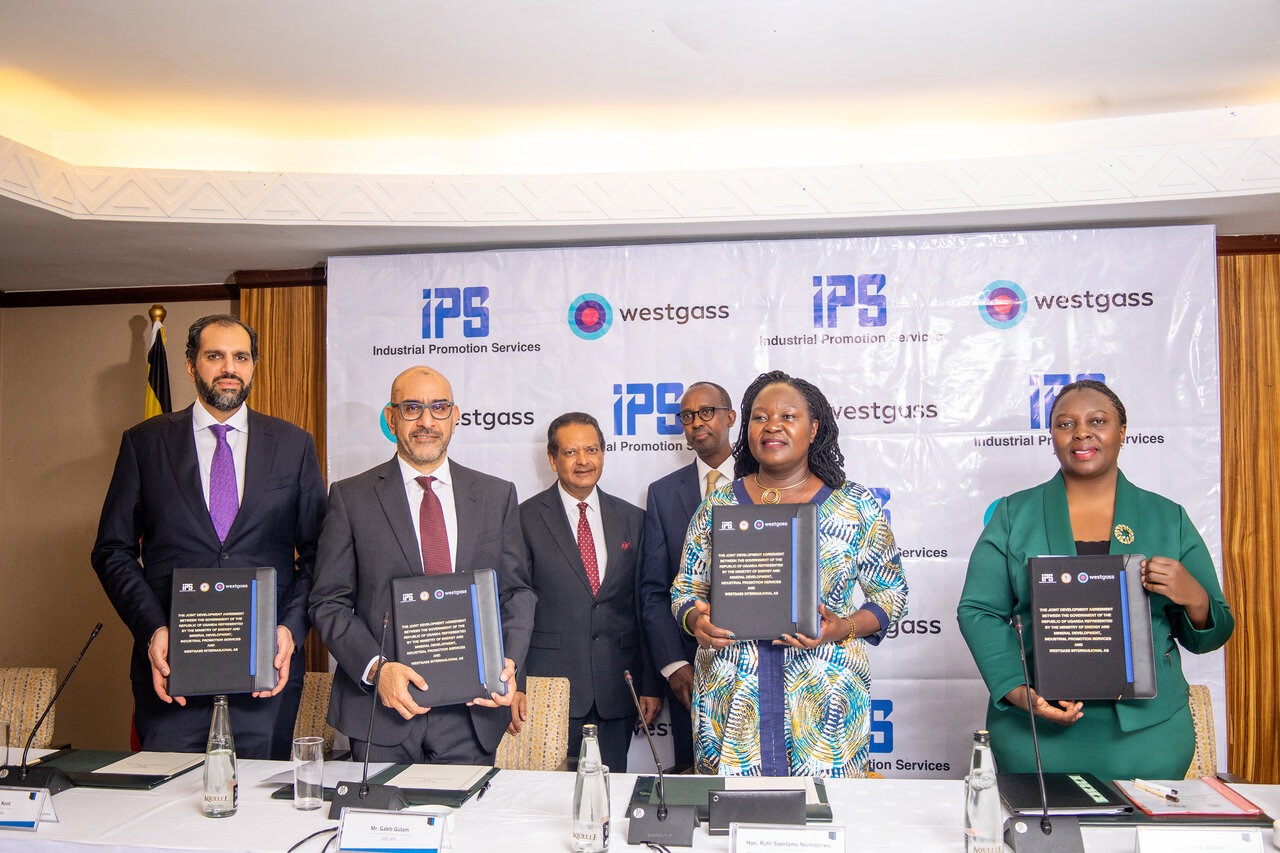Marking a significant stride towards agricultural sustainability, the Ugandan Government, through its Ministry of Energy and Mineral Development (MEMD), has forged a pivotal partnership with Industrial Promotion Services (Kenya) Limited (IPS) and the Norwegian green energy firm, Westgass Internasjonal AS. This collaboration, supported by Norfund, the Norwegian Government’s Investment Fund for developing countries, is set to pioneer the production of green hydrogen-based fertilizers in Karuma, Kiryandongo District, within the Bunyoro sub-region. This initiative is a critical component of the Presidential Advisory Committee on Exports and Industrial Development (PACEID)’s strategy to mitigate food and income insecurity by replacing imported fertilizers with locally produced, eco-friendly alternatives.
IPS, the infrastructure and industrial development arm of the Aga Khan Fund for Economic Development (AKFED), part of the Aga Khan Development Network (AKDN), and Westgass Internasjonal AS, recognized for its green energy solutions, will utilize cutting-edge green hydrogen technology. This project aligns perfectly with the Ugandan Government’s import substitution strategy, aiming to bolster food security and improve income levels nationwide.
The initiative has also secured backing from development financial institutions and the Government of Norway, highlighting a shared commitment to fostering green growth and expanding the continent’s green energy capabilities.
Galeb Gulam, CEO of Industrial Promotion Services, expressed excitement over this collaborative effort, emphasizing its role in climate action and sustainable development. “This project is a testament to our dedication to fostering low-carbon economic growth and supporting sustainable agricultural practices,” Gulam noted.
Kinar Kent, CEO of Westgass, echoed these sentiments, underlining the project’s significant contribution to reducing fertilizer imports and addressing food and income security challenges. “This partnership underscores our commitment to environmental sustainability and the economic empowerment of Uganda,” Kent added.
Odrek Rwabwogo, Chairman of PACEID, highlighted the project’s anticipated impact on Uganda’s export potential, “By leveraging Uganda’s rich resources and innovative solutions, we aim to boost the agricultural sector towards our $6 billion export target, benefiting farmers, communities, and the nation.”
The Norwegian Ambassador, Anne Kristin Hermansen, lauded the investment as a prime example of Norwegian public and private sectors uniting to support sustainable projects that will leave a lasting mark on Uganda’s economy. “This investment aligns with our priorities of enhancing Uganda’s food security while tapping into the country’s renewable resources,” Hermansen stated.
This groundbreaking partnership marks the beginning of an innovative journey to revolutionize Uganda’s agricultural sector through green hydrogen technology, demonstrating the power of public-private collaborations in achieving sustainable growth.
About the Partners:
- Industrial Promotion Services (Kenya) Limited (IPS) is a leading developer and investor in sustainable projects across Africa, committed to economic and social development, with a focus on agriculture, energy, infrastructure, and manufacturing.
- The Ministry of Energy and Mineral Development plays a crucial role in Uganda’s progress, developing and regulating energy and mineral resources policies to promote growth and sustainable resource management.
- PACEID aims to overcome challenges limiting Uganda’s industrial and export capabilities, fostering collaboration among exporters, producers, government institutions, and international stakeholders to spur export growth and industrial advancement.
- Westgass International, part of Westgass Hydrogen, focuses on green energy solutions to facilitate the transition from fossil fuels, aiming to supply green hydrogen and ammonia for carbon-neutral businesses by 2030.

